10 Things We Learned From Scott Snyder
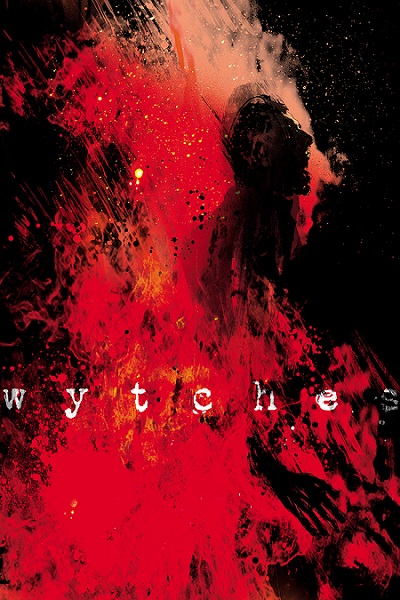 |
| Image Comics |
Wytches, the new creator-owned horror book, written by Scott Snyder with art from Jock and Matt Hollingsworth, debuted in October as an enormous success. The book reportedly sold 90,000 copies and has been universally lauded by critics, including here at Topless Robot. Issue #3 will be in stores tomorrow, and Scott stopped by to answer some of our questions about the series, its success, and about horror and writing in general.
1. The Creative Resurgence in Horror
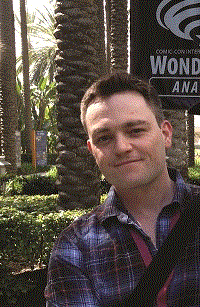 |
Topless Robot: First of all, congratulations on the enormous success of the book.
Scott Snyder: Thank you, man, I really appreciate that.
TR: It’s deserved; the first issue was phenomenal, and the second issue is as good.
SS: I’m totally and Jock is totally bewildered and humbled and thrilled by the success of the book. We really thought it was going to be something much smaller. It was really a place for us to go to do a really black, twisted, personal horror story, and the support the fans have shown for this book and also books like The Wicked + The Divine and Bitch Planet and all of these little passion projects that a lot of us have that we do at Image, it’s just overwhelming.
TR: I think [that passion]is also horror related, too. The last couple of years have seen really, really exceptional horror comics – American Vampire or Locke & Key or even Afterlife with Archie or Memetic.
SS: Oh yeah, dude, with Memetic, when James [Tynion IV, writer of Memetic and frequent collaborator of Snyder’s on various Batman projects] told me the idea for that, I adored it. And then as soon as I saw the first script I was like “this is something special.”
TR: Yeah, the first issue I got halfway through and I had spent the first half of the book laughing my ass off at the sloth picture and then just this look of utter terror was on my face as I went through the last half. The same way that dystopian young adult fiction is a reflection of the unrest that the target audience is feeling, do you think that the surge in high quality horror comics lately is a similar response to outside stimuli?
SS: Yeah, I think honestly a couple of things – I think one, the quality of comics has just gone up so phenomenally in the last few years in terms of both superhero comics and creator-owned. There’s always been terrific comics, don’t get me wrong, but I just think that the digitization of comics has brought this surge in audience and the bar in terms of what they demand and what they want from creators is excitingly high, you know, in the way that the number one priority they have as readers is they want you to challenge yourself and do something that they didn’t expect, that seems organic to your interests. So you get people doing books in all genres that are intensely personal, intensely exuberant, all of that stuff and then there’s this incredible sort of readership focus on them.
I think also with horror in particular is that we’re facing a lot of really terrifying problems, and the fact that we’re all so tied together through social media and we’re aware of things happening all over the world in ways that I think sometimes we used to be better at ignoring, for worse, you know, not for better but for worse. So the world being what it is right now, I think there are these looming fears and so horror is just one of the genres that I think is incredibly potent right now. Especially the kind of horror that you find with things like The Babadook and some of the comics that you named, Locke & Key and for me Outcast and Nailbiter. Just thoughtful, really dark, personal emotional psychological horror. Not torture porn or gore but real almost terrifyingly introspective horror.
TR: “Terrifyingly introspective” is really interesting. I’d never thought of it like that but I think for me, that’s what scares the hell out of me the most, is kind of that self examination.
SS: Yeah, that’s the stuff that for me with Wytches at least, that was a goal with the book and that’s the horror that I respond the most to in terms of my favorite comics, my favorite books, my favorite movies. The horror stories I love the best are always ones with scary monsters and things like that, but monsters that are only scary because they either illuminate or exacerbate the worst human behavior that’s scarier than the monsters in the first place. So you get Pet Semetary, where the cemetery is terrifying as a concept but it’s only scary because we use it out of fear and loneliness and longing and all of that. So for me with Wytches, it’s really meant to be about what the wytches themselves are supposed to be: these really terrifying cannibalistic monsters, almost mutations, and we don’t know what they are. But they’re only scary because they come after people that are pledged to them, so we’re the ones that call them into our lives. We give somebody to them to get what we want. It’s the human capacity for evil that’s scarier than the monsters in the series, really. At least that’s the goal.
2. Clever Girls
 |
| Image Comics |
TR: Why do you have to pledge? What’s the power that they derive from taking pledges that they wouldn’t get just from yanking kids off the street?
SS: Well they could. I think the idea is partly, Jock and I wanted to give them their own sort of completely alien culture, otherwise we felt that they would just be these predatory, animalistic things. They are that, but I think one of the things that I find frightening in horror stories is when the monster has a logic that feels almost…Lovecraftian, [that]sense of it being something that we could never understand or if you began to understand it, it would be even more terrifying or drive you crazy. So in that way here we wanted to give them a culture or a set of ritualistic behaviors that make sense to them, but it’s almost confoundingly and creepily enigmatic to us.
That said, it makes sense from a logic standpoint that they only want to take people someone has decided won’t be missed. Or someone has decided in some way that this person can go to you and it won’t look like I did it. So clearly this person probably is someone who can disappear without much problem. And the other thing is once you disappear, once you go, if it is somebody that will be missed, it’s on the humans, it’s on the person that pledged them, to administer this tincture into the food, or into a wound, or into the water, or into something that the person who has now lost someone eats or consumes that will give them a kind of brain damage that will literally make them forget or emotionally numb to the fact that they have lost someone. So it’s really the responsibility of the people that pledge victims to make sure that the wytches aren’t discovered by the outside world. In that way, it’s almost like if they snatched people off the street, people would come looking. This way, the pledge makes it so that they understand that whoever has pledged the victim is going to make sure that it’s either someone that won’t be missed, or if they will be missed, they’ll administer something that will make sure that the people that miss them don’t even remember that they existed.
TR: And it’s kind of a buffer, too, if anybody comes sniffing around, they can shift the blame off to the person doing the pledging.
3. The Soft Sciences
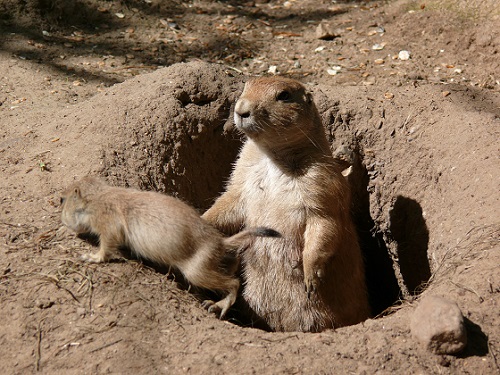 |
| Wikipedia |
TR: You mentioned their culture. How much deeper do you plan on taking us into their society? Are there renegades? How do they grow the tribe?
SS: Oh yeah. Very much. Jock and I have mapped out a whole system. There are older wytches who live deeper in the burrow that are almost less human. The cauldron is something that we’re going to introduce soon…it’s mentioned in issue 3, but you’ll see it in issues 4 and 5. It’s a special place in the burrow for very particular pledges that they want to cook alive.
So they have almost their own kind of strange apothecary corners in their burrows. They have designs on the walls. They have all kinds of artifacts that they use, and they have this very, very extensive apothecary full of things that’s very primal and almost caveman-like. But it’s incredibly sophisticated in terms of what they can do with these very simple things – from grinds made from all kinds of minerals and bones and rocks and blood and teeth and marrow – all these sorts of things that they can put together and they can create tinctures that can make you live an extra 30 years, that can make someone fall in love with you, that can cure all sorts of terminal illnesses. So they have these incredible powers, even though the spooky thing is they look nakedly animalistic and inhuman.
4. dlroW rorriM ehT
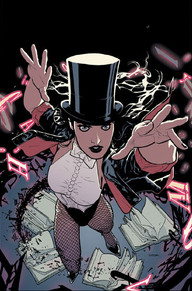 |
| DC Comics |
TR: In the first 2 issues, Charles has the childrens book series that has the amusement park that comes to life at night. The story [in]2 has Taylor stuck in the mirror world after being stuck in the Hall of Mirrors, and his speech is backwards. Is that a Zatanna reference?
SS: [laughs]
TR: I know you’re trying to drop witch references from pop culture in there.
SS: We actually joked about that, me and Clem, the letterer, at one point. He asked “Are we doing Zatanna?” For us, I tried to mention hippogriffs, and here a little bit of Zatanna found its way in. We’re trying to make a lot of references. You’ll see mention of mythological witches and stuff like that soon too.
TR: How much is the story inside the story going to play with the reader at all?
SS: I didn’t want to make it too intrusive, but to me it’s a really big part of what the book is about. Charlie is somebody who you begin to see in 3, but certainly in 4 and 5 has a dark streak also, and I think he works a lot of that out through his art and his writing the way a lot of us do. It’s a very, I don’t want to say embarrassing book, I guess, but it’s a book that is meant to be personal about some of the things that I think as a father you struggle with, both as an artist – worrying about the amount of emotion and energy and everything you expend on your children – but also as a father, as a person. I think he gets very frustrated by how much he loves…his daughter. The book is a way for him to both escape and work through some of that. The idea of the book he’s working on right now where you go into a mirror world where all your wishes come true, he says to Sailor in issue 1, he gets angry at one point and he says when she tells him that she’s worried that her desire to make Annie, this bully, disappear is what caused it. He gets angry and he says “Wishing something doesn’t make it so.” But that idea of the wytches being a way of making wishes that shouldn’t come true come true, an unnatural path to getting what you want and making things happen that shouldn’t happen, is a big part of the book. You go to them because you want things that are reversed and unnatural and on the other side of the mirror of possibility or reality to come through and be real, and they can make that happen. They’re a twisted reflection of us, a funhouse mirror.
5. The Secret Horror of Flappers
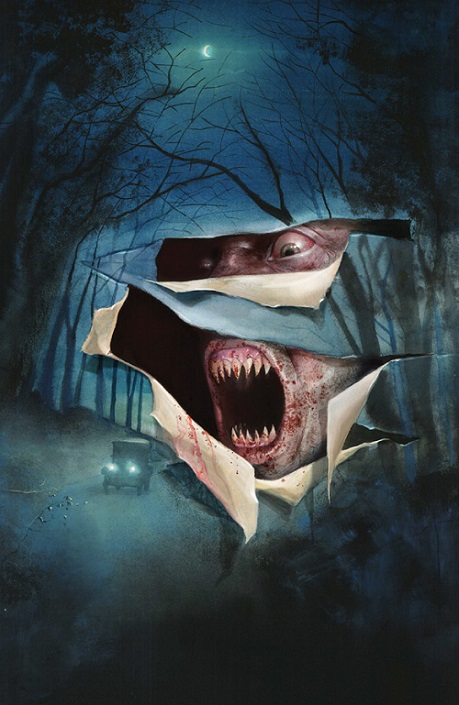 |
| Image Comics |
TR: The cold open of the book starts in 1919, American Vampire starts in ’25, Severed was 1916, and there were a couple of stories in your short story collection that are set in and around the same time. What is it about that time period that keeps drawing you back as a storyteller?
SS: That’s a great question. I think what it is is that period is a moment of incredible optimism, and this moment of tremendous invention where the car is becoming so popular and the electric light is everywhere and movies are becoming popular and music is finding, in the 20s at least, American music is beginning to find its own identity. It’s a moment of great identity in that way, where we as Americans are so proud of all of these new things that are being created and then becoming a part of what we consider our culture in a big way. But at the same time it’s this moment of tremendous terror, both about the looming war when you’re talking about 1910, 1912. But also, of all of the inequality and all of the terrors that are going to be brought around by modernity. All of those things are there on the horizon too. So I’m just fascinated by that moment, too, where everything is being built so fast. It’s almost like a moment of growing pains, too. There’s something about it that I just find so interesting, because so many of the things that we think of as iconic, from flappers and the jazz age, that seem so iconically “us” begins to be a part of the imagination and yet it’s also this time of tremendous heartbreak and sorrow.
TR: Post World War 1 it’s kind of America’s kind of coming out party as an international power, too, so the shaping of the cultural identity takes root there, too.
SS: Yeah, and then you have the Depression looming right there, too. There’s something so, I don’t know, so rich about that moment for me. There are other moments like that too, like the ’50s, that I return to a lot. That’s one of the moments we really linger on in American Vampire. Those moments where this sense of possibility and also this underlying sense of complete inequality and this looming disaster.
6. Special Offer for TR Readers
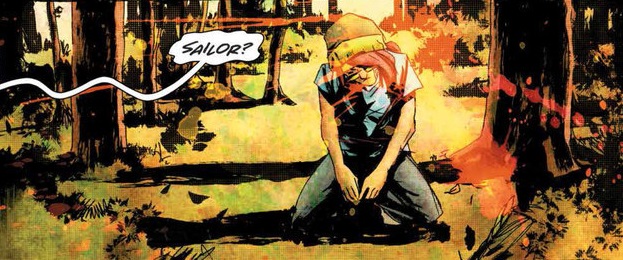 |
| Image Comics |
TR: You talked a little bit about music, I know you’re a huge Elvis fan and the blues were a huge influence on some of your work. Are there any musical influences here?
SS: Yeah, it’s funny, one of the things I was thinking of doing with Jock is we were going to make a playlist, so I was going through a lot of early American folk, from Robert Johnson blues that sounds really haunted to Evan Miller and The Carter Family and old folk tales about meeting the devil. So we were going to make a playlist and then ultimately this story was so modern that it felt out of place to do stuff that was so antique. Then we started getting into songs about witches and witchcraft now and it just began to feel like too much. So we scrapped the idea and instead we made playlists for the characters for us. So there’s a Spotify playlist…that’s Sailor songs and Charlie songs and Lucy songs.
[Note from Jim: You can find that playlist here.]
7. The American Nightmare
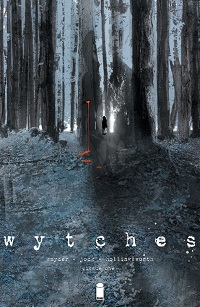 |
| Image Comics |
TR: To go back for a second to that cultural identity thing, it also seems like a hallmark of your career that you twist Americana into something horrifying. American Vampire is like a horror alternate universe US history book; Severed is like Huck Finn with a cannibal…
SS: Yeah, [laughs]it is kind of like that.
TR: And now Wytches is this horrific spin on the American Dream. Is it your intention to play with cultural norms like that?
SS: For me, I’ve always been so attracted to Americana…I was really close with my grandparents growing up. They used to watch me a lot and they would take me to these antiques fairs – they were big antiquers – and they always wanted to make up a story about whatever you got, so their house was just full of stuff from different eras. A lot of it was about making up a creepy or fantastic story behind the objects. I’ve always been a big fan of American history, and for me the thing that makes something scary a lot of the time is when it’s something familiar that you take some sense of safety in or there’s some sense of identity in and then it turns into something murderous. Stephen King does that better than anybody, in my opinion: the family dog [in Cujo]or your car in Christine, those kind of things that are almost totemic for you. So taking things from American history or moments from American history or figures, things that I find really emblematic of the way I think of figurative American identity and then turning them into monsters or using them to become horrific is really potent, for me, as a way of making horror personal and making it energized for me as a writer.
8. Getting the Band Back Together
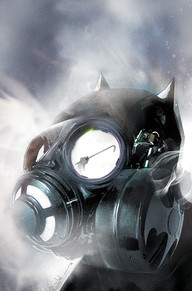 |
| DC Comics |
TR: Working with Jock again, looking back at some of the writers’ notes from Detective, it seems like you didn’t necessarily work loose, but there was a lot of flexibility and give and take in the working relationship. Has that changed at all with Wytches, or since Wytches started even?
SS: He’s a really, really good friend, so the way we work is I will call him and walk him through the whole script before I write it and see if there’s anything that he thinks could be done better or visually would be more striking in a different way. And then when we agree on it, I’ll write it and panel it pretty fully, and that’s his preference. For example, working on Batman, Greg (Capullo, artist on that book) prefers a bit of a looser style than Jock and so for Greg I write more loosely – I’ll put the dialogue but I’ll often leave out a lot of the panels and I don’t number them and things like that. For Jock, though, he likes that scaffolding and framework and I like writing that way, so I’ll give him a pretty full script, but there’s always that caveat at the beginning of the script that says “As always, anything that you want to compress, expand, alter, just make it better.” Honestly, it’s the thing that made me really not miss prose is how collaborative the medium is and when your artist surprises you, it’s just the best feeling in the world.
TR: One of the most distinctive things about the book have been Matt Hollingsworth’s colors.
SS: Oh yeah.
TR: They’re phenomenal. they’re really distinctive. Is that aesthetic something that he came up with on his own or was that a collaborative decision with everybody else?
SS: The funniest thing is he did the preview for us really conventionally, and Jock and I really loved the color, but we were looking at it and I remember saying to [Jock] “Do you think we could ask him to do something more off-putting or a little more disturbing? Colors that you don’t expect?” Because he had done work like that on The Wake, and you’ve seen him do Hawkeye and so many books where he’s so versatile. So Jock talked to him and said “We want something that’s a little disturbing” and he came up with this style all on his own and we just loved it from go, and I’d never seen anything like it. It feels almost hallucinatory and totally disconcerting, I just love it.
TR: Like you’re looking at the story through an oil slick.
SS: Yeah, exactly.
TR: Has it changed how you see the story when you’re writing it?
SS: Once I saw the art in the first issue and you get a sense of the aesthetic of it, it does change it a little bit in the way that you, for me at least, I know for example that when they’re in the woods and want to give much more room than I normally would for conversations, only 3 panels a page and stuff like that because the colors are so dazzling and Jock’s work in terms of his scene setting and world building in this one is so intense that it’s almost like I try and be aware of what’s going to work and give them room to really shine. It’s interesting, from artist to artist you work really differently. For Rafael [Albuquerque, artist of American Vampire], there’s things that I know he loves and he really shines on or Sean Murphy he just takes off with. They’re different, and you try and adjust to make everybody have the best time they can on the book.
9. They have a plan.
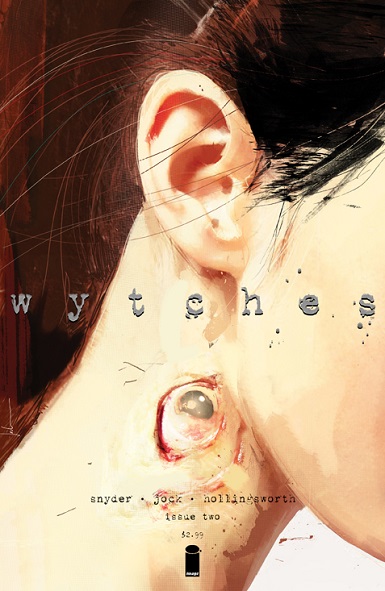 |
| Image Comics |
TR: I know you only work one arc ahead usually, but is there a long-term plan?
SS: Oh yeah, we have a total plan for the second and third arc. It was part of our pitch. The second arc focuses on the people that hunt wytches and the burrows of wytches, one of whom is introduced in this arc, I won’t say where or who. There’s a whole sort of culture of people that are after the oldest and deadliest burrows in the country. Also, that arc will also focus a lot on the history of wytch hunting and this notion that the people that were accused of witchcraft and burned and tortured, a lot of them were the people who were hunting wytches. And in fact, the people that worshiped wytches accused [the hunters]of being wytches themselves, but the people that were burned and the people that were persecuted were the good guys that were looking for the burrows.
TR: Are they global?
SS: Oh yeah, yeah, they’re totally global. But I’m a bit of a homebody when it comes to my writing so for me I’m very excited to explore next arc Louisiana and other places around the country that have very rich folkloric history. For me also, one of the fun things is when you want to get away from the wytches you move to the southwest. You just go far away where there’s no trees whatsoever. There’s a whole – and I don’t know if I’m saying way too much about the series, but I’m excited to talk about it – there’s a whole national map where the darkest and deepest burrows are and places where people who know about the wytches could congregate if they’re against them because they feel like the wytches can’t hide and can’t send people after them and they’ll see them coming. So all kinds of places in the desert, places in the flatlands. This is really the tip of the iceberg, this arc, for us.
10. #dickbrusher
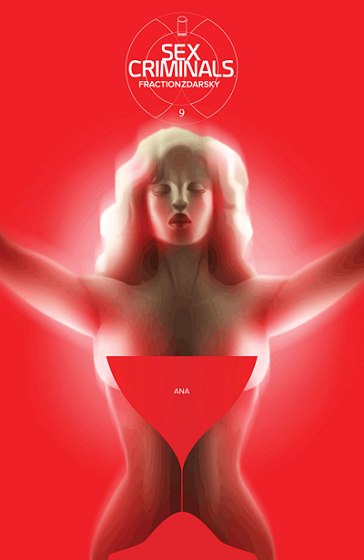 |
| Image Comics |
TR: One last question: are you at all worried that Fraction and Zdarsky are going to corrupt the sanctity of dick brusher?
SS: :laughs: I would love that man. Whenever Chip says anything to me on Twitter it makes me happy. I love those guys. I consider them both friends and I couldn’t be happier for the success of that book. Nothing would make me happier than to appear in Sex Criminals or for them to co-opt anything from Wytches and put it in that book.
TR: After this week’s Wicked + Divine porn parody, I think it’s only a matter of time.
SS: I know, right? I saw that. I’m up for it. I got killed in Manhattan Projects which was a highlight.
TR: Really?
SS: Yeah, me and Greg Capullo both.
TR: Which issue? I missed that?
SS: I think it was 11. I think.
[Editor’s note: Jeff Lemire, Greg Capullo and Snyder were all cut in half by Gatling gun fire from General Westmoreland in MP #18, and it was utterly magical.]
TR: Oh shit, I’ve got to go back and look at that.
SS: It’s a great scene.
TR: That’s awesome. Thank you so much for taking the time to talk to us!
SS: Thank you, man. I hope we get to do it again soon.
Wytches #3 goes on sale Wednesday, 12/17 in comic shops and online. Be sure to check back then to see what we thought of it!
.
